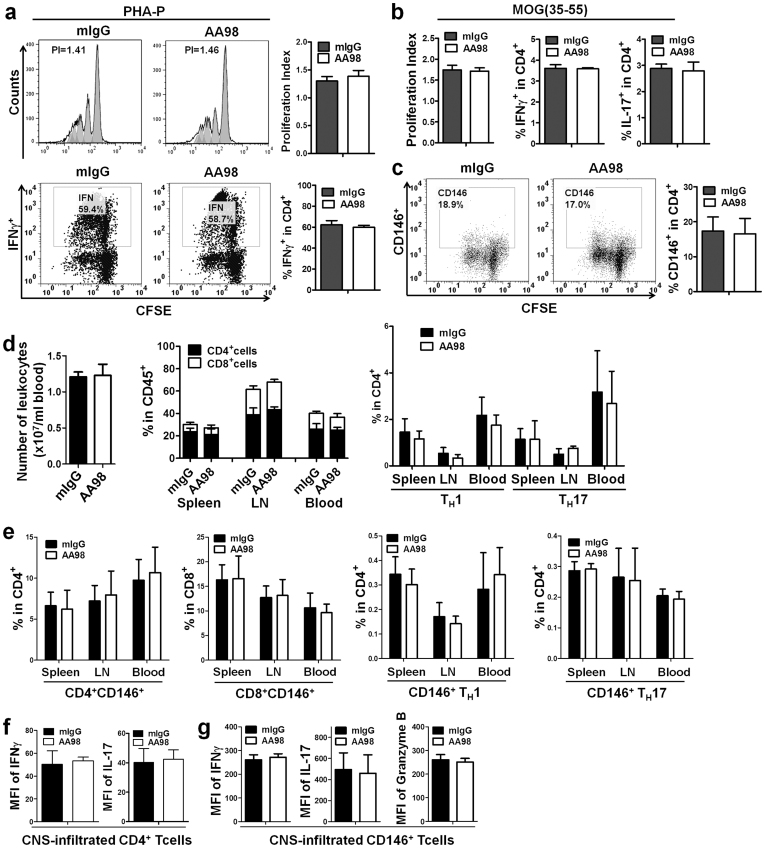Figure 6. The anti-CD146 antibody AA98 does not affect lymphocyte proliferation or activation in vitro or in vivo.
(a and b) AA98 treatment did not affect either PHA-P-induced (5 μg/ml) (a) or MOG(35–55)-induced (50 μg/ml) (b) lymphocyte proliferation in vitro or the in vitro production of IFNγ or IL-17. (c) AA98 treatment did not affect the in vitro proliferation of CD146+ cells. (d) AA98 treatment did not affect the total number of leukocytes or the percentages of CD4+ and CD8+ TH1 and TH17 cells in the spleen, lymph nodes or peripheral blood of mice with EAE. (e) The percentage of CD146+ T cells in the spleen, lymph nodes and peripheral blood of EAE mice was not affected by treatment with the AA98 antibody. (f) The mean fluorescence intensity (MFI) of IFNγ and IL-17 expression in CD4+ T lymphocytes in the CNS of EAE mice was not affected by treatment with AA98 antibody. (g) AA98 treatment did not affect the MFI of IFNγ, IL-17 or Granzyme B in CD146+ T lymphocytes isolated from the CNS of mice with EAE. The data represent three independent experiments. PHA-P, phytohemagglutinin-P; LN, lymph nodes; MOG, myelin oligodendrocyte glycoprotein.

